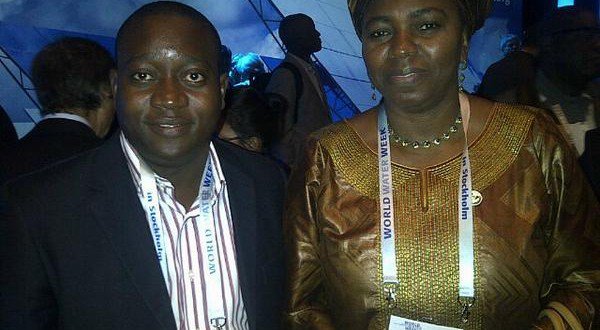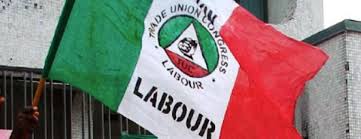At least seventy percent of Nigerians have access to portable water supply for 24 hours in a day and seven days a week.
The Minister for Water Resources, Mrs. Sarah Ochekpe stated this on Monday at the sidelines of the 24th World Water Week in Stockholm Sweden.
She said Nigeria is abundantly blessed with enourmous water resources but that her ministry is still working towards ensuring that 100 percent of Nigerians have access to portable drinking water at all times.
“From our own analysis about 70 percent of Nigerians have access to portable water. But our desire is to see that 100 percent of Nigerian have access to portable water on a 24 hour bases and seven days a week,” Ochekpe disclosed.
The World Water Week which started as a research symposium in 1991, annually draws environmentalists, government officials, intergovernmental agencies, academics, civil society activists and researchers together to fashion a way whereby affordable portable water will be available globally.
This year’s theme: Water and Energy is to look at the interdependence of water and energy and how governments all over the world can ensure a balance between the increasing demand for energy and ability to continue to provide portable water supply for the world.
President of Liberia, Ellen Johnson Sirlief who is also the Grand patron of the Global water Partnership was billed to deliver the keynote address but was absent due to the outbreak of the Ebola Virus Disease (EVD) in her country.
In a prepared statement, Sirlief said there is an urgent need to address the issue of water and sanitation especially in the view of the outbreak of the EVD in West Africa.
According to the World Bank, 2.8billion people live in areas of high water stress while 2.5 people have unreliable or no access to electricity.
By 2035, the World Bank estimates that energy consumption will increase by 35 percent which will also drive up the demand for water by 85 percent, putting pressure in scarce water resources especially in the developing countries.
But Ochekpe said while Nigeria is building many more dams to generate hydro power to complement what is derived from thermo and gas energy to boost electricity supply, there is a proportionate use of water for power generation.
She said water and power are interdependent as water is important in generating power.
“Discussions are on to emphasize the importance between energy and water to show the two are important in global development, generally we need water generate energy and we are working on that,” she said.
She emphazised that with the investment the Nigerian government is making on energy generation, Nigerians will soon witness significant growth in the economy.
She revealed that her ministry is working in collaboration with the Ministry of Power, Agriculture and Environment to see how Water and energy can be appropriately utilised without hurting the other.
However, the Minister maintained that despite campaigns in some quarters that African countries should not develop hydro Power technology, Nigeria will continue to pursue hydro Power as a solution to her energy crisis.
She said while Nigeria is blessed with enourmous water Resources, the key is to effectively manage the use of water both for energy, agriculture and consumption.
“Hydro power is clean and renewable energy, it is less expensive. I don’t think Nigeria will subscribe to that clamour not to do hydro power. We are blessed with a lot of water resources, what will we use the water resources for?
“What is important is to be able to manage our water resources efficiently, to be able to spread the use in a way and manner that will not be deficient to some other parts, so far we are able to manage carefully the use of our water. The hydro power that we are generating is not much, so we haven’t gotten to that point of overuse of water resources or using more water to generate power at the expense of having water supply or using water for agriculture,” the Minister stated.














